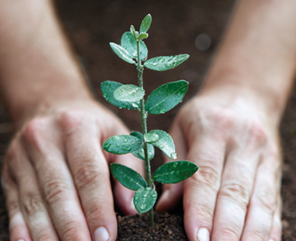Fundamental criticism of the plastics industry by citizens' initiatives, NGOs and the wider public makes a coordinated, transparent response necessary. With Dr. Michael Rosenthal, Baerlocher becomes the important voice of an industry in search of trust. Since then, the image of the industry has changed from an undifferentiated enemy image to a dialogue partner for politics and society.
In 2023, Baerlocher is represented and involved in around 50 associations worldwide and plays a leading role in the "VinylPlus" initiative. Because helping to shape its own industry and its framework conditions is an intrinsic concern for Baerlocher. However, CEO Arne Schulle emphasizes: "It is not about preventing regulation when it is right. It's about having a formative influence to bring something forward in a positive way." Initially, the association's activities are limited to Europe, where the plastics industry has had to find a common voice since the 1990s because of new EU standards and in order to take responsibility and to be taken seriously as a dialogue partner. An important milestone is the voluntary commitment to phase out lead in 2000.
Amidst and in the forefront: Dr. Michael Rosenthal and other Baerlocher employees. At the same time, the situation in Europe is creating new standards that are gradually being adopted in other regions of the world. Also, the goal of basing decision-making processes on scientific data and objectifying the debate is becoming more firmly established in the industry.
Common interests despite competition
Dr. Christian Rosenthal does not think too much of association involvement in his time. But since the 1970s, the social and political environment has changed significantly. Justified criticism and sheer prejudice against "the" chemical industry go hand in hand. Plastics and especially PVC are under attack. The latter has a dramatically bad reputation in the 1990s, even a ban is being discussed. Progress at individual companies, such as Baerlocher under Dr. Michael Rosenthal, is not enough - the entire industry is needed in the face of regulatory pressure.
Revolution from within
Public and political demands for lead-free products finally bring the PVC industry, which was under particularly high pressure at the end of the 1990s, to the table. In this way, a fact-based dialog with all stakeholders succeeds. Public and political demands for lead-free products finally bring the PVC industry, which is under particularly heavy pressure at the end of the 1990s, to the table. This is how a fact-driven dialogue with all stakeholders succeeds.
Especially Michael Rosenthal is engaged to get everyone involved, including the competitors. In the European Stabiliser Producers Association (ESPA), of which Baerlocher is one of the founders, almost 95 % of the additive producers are united. Together, they are developing a voluntary commitment, within the framework of which it is possible to comply with the requirements. And they do so much faster and more efficiently than would have been possible through regulatory actions.
Vinyl 2010
With "Vinyl 2010", together with other associations, they have committed themselves to gradually phasing out the marketing and production of lead stabilizers in Europe. It is a success story. Between 2000 and 2008, the consumption of lead-based stabilizers in the EU-15 decreased by 50 %, between 2007 and 2014 by 86 %. In 2015, lead-based stabilizers are replaced in the EU-28 and the last production lines phased out. It constitutes a milestone with global impact.
Recovinyl and VinylPlus
Michael Rosenthal, who has been President of ESPA for many years, has the interests of the entire industry at heart. In 2010, ESPA becomes a founding member of the European PVC industry's successor initiative "VinylPlus", which is renewed in 2020 with a new target for 2030. ESPA initiatives such as “Recovinyl” aim to promote PVC recycling across Europe, including the recycling of compounds with lead-based stabilizers. The environmentally friendly and sustainable reuse of PVC has already been implemented for decades, and this also applies to lead-based products. Dr. Tobias Rosenthal explains, "Recycling PVC with lead-based stabilization is safe and environmentally friendly because little energy is consumed, but above all it makes sense because it means we use less new material. It's one of the few existing global plastic cycles that involves significant quantities." In Europe, more than 7 million tons have been recycled since 2000. However, due to their long service life, lead-stabilized compounds in particular are still brought back into the value-added cycle in rather small quantities. In this respect, the industry is striving to ensure that this valuable raw material, can continue to be recycled. At least until appropriate processes are available that allow, for example, purification in a way that is both ecologically and economically sensible.
The future
To continue shaping the future of its industry in this respect, Baerlocher remains strongly involved in the association's work. After all, sustainability and the transition to a circular economy are existential issues for the future. It is a matter of using specific plastics in the right way, using more sustainable raw materials and designing long-lasting applications. This is also evident in the Asia-Pacific region, where European regulation, which is disadvantageous in the competition at first, can be transferred to new situations with foresight.
At the same time, it is important for Baerlocher to look at the overall picture of raw materials and supply chains beyond its own backyard. This and the experience gained through the association's work with political stakeholders outside its own industry make Baerlocher a perfect match in a time of a rightly critical global public.










